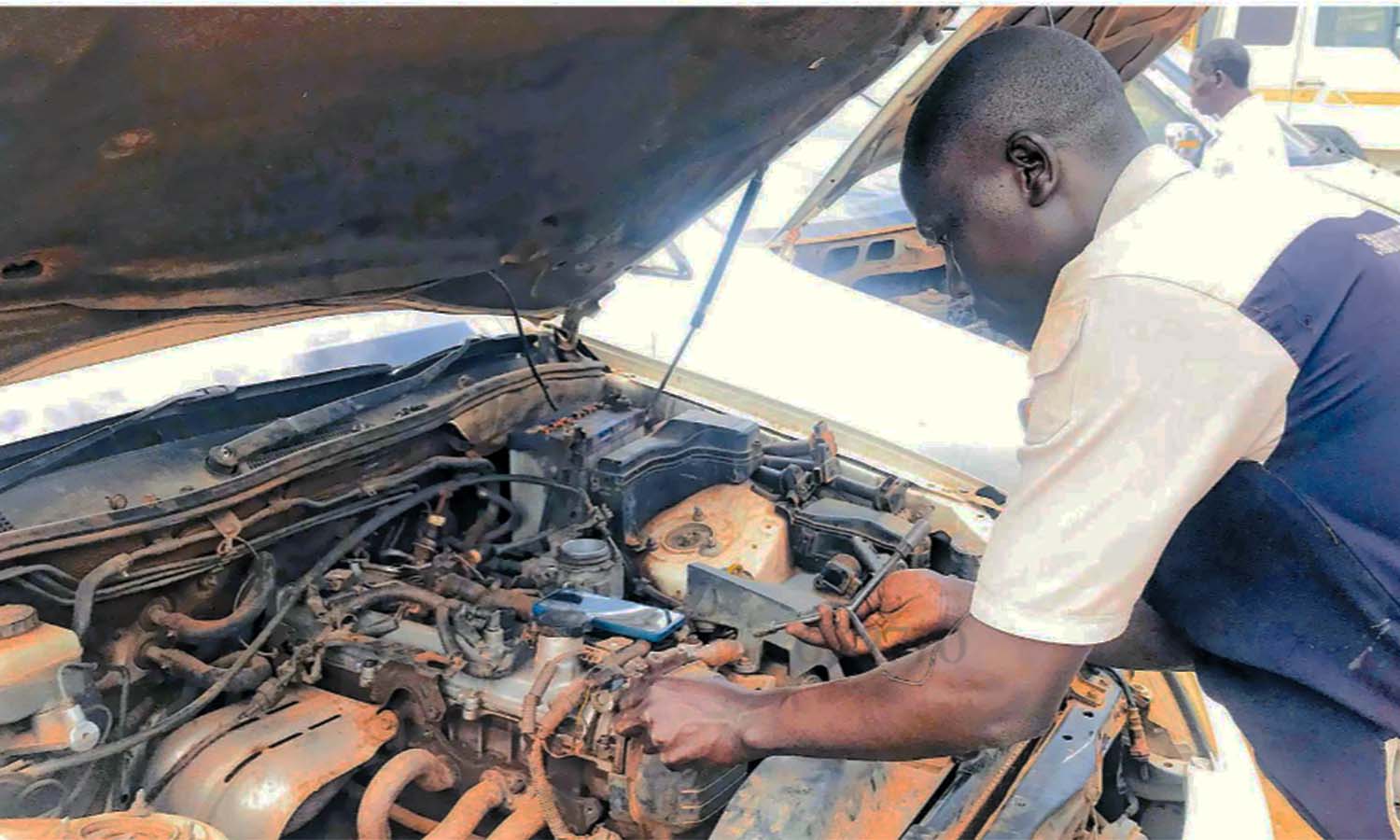Prime
Focus should now be on recovery, building resilience for job creation

TradeMark East Africa chief executive officer, Frank Matsaert
What you need to know:
Covid-19 is daunting, complex, and ubiquitous. It is not just a public health matter; but also affects progress in the fight against poverty in Africa, due to its direct impact on jobs and economic performance.
Frank Matsaert
We are living in times of great uncertainty, fuelled by the onset of Covid-19.
Despite this, we have maintained our focus on supporting trade and building prosperity, creating jobs, and reducing poverty in eastern Africa.
Covid-19 is daunting, complex, and ubiquitous. It is not just a public health matter; but also affects progress in the fight against poverty in Africa, due to its direct impact on jobs and economic performance.
It has catalysed rethinking of global supply chains, shaken traditional patterns of partnerships, but also stimulated unanticipated innovation.
It has magnified the importance of trade as a driver for development and building resilient economies.
It is noteworthy that projected economic growth has more than halved in many countries, particularly in East Africa.
TradeMark East Africa has responded by creating a Covid-19 mitigation programme that leveraged our 10 years of experience, in addition to accelerate core programming with higher levels of innovation and forged new partnerships to address challenges to eastern Africa’s recovery.
In 2019-20, we begun with an overview of the innovative Safe Trade Emergency Facility (Safe Trade) that we developed and rolled out when Covid-19 first hit East Africa.
This was rolled out with the support of our development partners in the European Union, Finland, Canada, Denmark, the Netherlands and the United Kingdom.
The sudden onset of Covid-19, curtailed trade due to lockdowns and closure of borders to avoid the spread of the pandemic.
Therefore, Safe Trade sought to support the continued flow of essential commodities such as food and medicines through borders and it has been powered by the commitment of governments to keep borders operating and to enhance efficiency of the transport corridors from ports to land borders, thus ensuring that land-linked countries maximise the potential of international trade.
Safe Trade continues to play a critical role in coordinating responses to Covid-19 in partnership with the region’s governments and the private sector, with the objective of keeping trade moving, thus protecting jobs and livelihoods.
We have highlight and continue to put focus on our progress on two critical areas including reduced barriers to trade and improved business competitiveness, which are designed to build resilience of regional economies.
The reduced barriers to trade component has accelerated digitalisation to build smarter physical infrastructure, systems and processes that will spur regional competitiveness to ensure long-term economic recovery.
This is in addition to supporting multi-modal transport systems across eastern Africa.
Our work on improved business competitiveness has remained responsive to the needs of private and public stakeholders by supporting policy reforms, uptake of innovative business solutions, and targeted programming to 50,000 more women traders at 20 more borders across eastern Africa.
We have supported Private Public Partnership Dialogues that supported trade negotiations between the East African countries and other parts of the world, leading to mutually beneficial trade agreements.
The Private Public Partnership Dialogues approach provided great lessons on the possibilities that advocacy presents as Africa Continental Free Trade Area (AfCFTA) operationalisation materialises.
For the first time, we present highlights and results from 10 and not the usual seven countries in which TradeMark East Africa now operates.
We continue to expand our reach across eastern and southern Africa with the addition of new programmes in Malawi, Ethiopia, and Somaliland.
Our partnership with the government of Kenya deepened as we supported its industrialisation agenda by accelerating development of transport infrastructure necessary to support industrialisation.
For example, we improved infrastructure and systems at the Port of Mombasa, with Magongo and Kipevu roads progressing to more than 50 per cent completion.
We also supported first, middle, and last mile supply chains, ensured private sector access to market information, and supported development of 15 digital portals for trade in government agencies. These portals will simplify and reduce export and import transaction costs.
Ongoing works at Moyale Border – between Kenya and Ethiopia - will link the East Africa to the Horn, with improvements on this corridor expected to open a market of over 160 million people.
In Somaliland, improvements on Berbera Corridor continued with the commencement of Hargesia Bypass construction.
Our “Good neighbour approach” supported programming in DR Congo where continuous engagement with national and provincial governments paved way for extension of the Regional Electronic Cargo Tracking System and the construction of a One Stop Border Post at Goli (its border with Uganda).
We believe that trade facilitation interventions such as improved customs, removal of non-tariff barriers, and training of private sector will help DR Congo to lower its significantly high costs of trade with East African Community member states.
Millions of people in eastern Africa depend on trade. This has been proven and we have demonstrated efforts put towards scaling up multi-sectoral trade interventions by TradeMark East Africa and its more than 50 public and private sector partners to support building resilient economies that have the capacity to create and increase quality jobs and reduce poverty for all.
Of course, all this has been achieved through continued support from donor partner governments in the UK, the EU, Belgium, Canada, Denmark, Finland, Ireland, Netherlands, Norway and US.
In the 2019/20 financial year, we also strengthened our partnerships with our host governments, private sector and civil society.
Therefore, at TradeMark East Africa we have remained resilient in a highly dynamic environment and continued to focus on achieving results for millions of citizens across eastern Africa.
The writer is the TradeMark East Africa chief executive officer.




